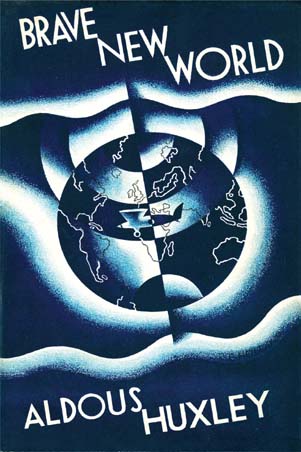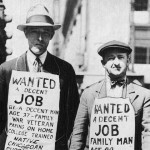
Last week my pastor Anita asked me to write a sermon about bridging the gap between liberals and conservatives. It’s scheduled for Sunday, Nov. 6th. I’m shooting for 15 minutes.
I’m not sure what shape it’s going to take, but to prep I’ve been re-reading Alasdair MacIntyre’s After Virtue, as well as listening to some philosophy podcasts, and it’s such a refreshing break from our left-right, Clinton-Trump moral and political milieu. There are no hashtag movements in academic philosophy, nor the level of un-examined premises. People care about the truth, and you can feel the difference. I hope my sermon has the same effect. In this post, I wanted to brush up on MacIntyre’s arguments and revisit my old research project from college where I compared his views to F. A. Hayek’s. Here, I focus mostly on teleology and how, according to MacIntyre and Hayek, the Enlightenment’s abandonment of Aristotle put the Western world on a path to destruction.
***
In 2010, I published a paper comparing MacIntyre’s After Virtue to F. A. Hayek’s The Counter-Revolution of Science. I looked at how both men objected to certain Enlightenment thinkers and to the modern abandonment of teleology from the study of human beings. Teleology was an important concept in ancient Western philosophy, as well as Western theology, which examined things in terms of their purpose or potential.
How Western Civilization Left Aristotle Behind
As I understand the history, teleology (the method of Aristotle) fell out of favor in the natural sciences during Scientific Revolution and in the human sciences during the Enlightenment.
Most would agree that in, say, physics, teleology is unhelpful, that it doesn’t do much good to speak of “purpose” when you’re talking about an atom or a rock falling to the ground. Thanks in part to Francis Bacon, empiricism supplanted teleology in the 1600s as the accepted method for studying the natural world.
During 1700s, however, this method bled over into the human sciences. In ethics, Enlightenment philosophers such as Kant and Bentham began searching for an independent, rationally justifiable foundation for moral rules.
In the mid 1800s, Comte’s writings helped establish positivism as the future of the social sciences.
In the late 1800s, the German Historical School and the Austrian School of Economics engaged in a decade-long argument over economic methodology, called the Methodenstreit. This fight pitted the new empirical-inductive method against the older, teleological-deductive method, with Gustov von Schmoller supporting the former, and Carl Menger supporting the later. Menger is regarded as the founder of the Austrian School of Economics (the term “Austrian School” was first used by Schmoller as a pejorative in a review of Menger’s Principles of Economics, and it stuck).
During the twentieth century, Hayek, as part of the Austrian School, was critical of how the social sciences (and economics, in particular) began to imitate the methods and language of the natural sciences. The ambition of social scientists, in this regard, to copy a method which had proven successful in the natural sciences and use it in their own field, Hayek considered unscientific. He called this attitude “scientism” or “scientistic prejudice,” and argued that this approach denies basic aspects of the data and subject matter of the social sciences, particularly the subjective nature of human thought and action.
He used the example of a hammer and explained that people do not behave the same way towards a hammer because of its physical properties, but because they have learned to classify it in the same way. What matters to the social sciences isn’t the hammer itself, but how people have come to view it, and for what purpose they intend to use it. “In the social sciences,” he writes, “things are what people think they are.” He worked out his methodological views in a number of books and papers. Even the Road to Serfdom, his most popular work, is considered a part of this project.
In After Virtue, published in 1981, MacIntyre takes aim at those Enlightenment thinkers who abandoned Aristotle’s teleological method in favor of an attempt to ground moral rules in abstract, disembodied reason, as well as governments, firms, and social scientists who claim legitimacy and expertise based on their ability to plan society using predictive models and law-like generalizations. He draws a line between these two developments, the loss of teleology in the study of man and the rise of the modern, bureaucratic state with its social scientists.
With the repudiation of the Aristotelian conception of human action, the explanation of human action shifted from questions of purpose, or good, to mechanistic, causal sequences that can be expressed mathematically and put into generalized laws, which, as MacIntyre writes, “must omit all reference to intention, purposes, and reasons for action.”
It’s at this point that we can begin to see how MacIntyre’s ethics and Hayek’s economics are in agreement that the Enlightenment’s view of reason and its rejection of teleology in the human sciences put Western culture on a troubled road.
MacIntyre on What This All Means for Ethics
For MacIntyre, without teleology, there can, in the end, be no ethics. Without a discussion of human purpose, there can be no basis for morality. Ethics, to MacIntyre, is the attempt to bridge the gap between man as he is and man as he could be if he realized his essential nature, and this view presupposes a human telos.
Consider a watch. To call a watch “a watch” is to imply that it ought to perform a particular function. A watch ought to keep accurate time. A watch that does this well is a good watch. A watch that is fast or slow is a bad watch. In the same way, MacIntyre, following Aristotle, argues that human begins have a purpose, a telos, and that to try and discuss ethics without reference to that telos is like trying to say what makes a watch good or bad without reference to why we use watches in the first place.
According to MacIntyre, Enlightenment moralities don’t even purport to answer the question: what sort of person am I to become? They’re primarily concerned with what rules to follow, rules that must be given an independent, rational justification (without reference to purpose).
One of the primary arguments of After Virtue is that this search for an independent, rational justification of morality has failed, and, in MacIntyre’s view, the consequences of the failure of this effort (what he calls The Enlightenment project) are being played out in our society today, where emotivism has become “embodied in our culture.”
Hayek on What This Means for Economics
For Hayek, economics, as a science, must not abandon teleological concepts in favor of fashionable mathematical constructs or predictive models. Economics must acknowledge purpose because human beings are purposeful creatures. We use means to achieve ends. We are bizarre and unpredictable, with values and plans that are ever-changing, with flawed perceptions and opinions. These are the facts of the social sciences, and they are subjective, existing only in a dispersed, incomplete, and fragmented form, intimately connected to human needs and desires.
The economic problem of society, according to Hayek, is “how to secure the best use of resources known to any of the members of society, for ends whose relative importance only these individuals know. Or, to put it briefly, it is a problem of the utilization of knowledge which is not given to anyone in its totality.” In other words, economics isn’t about goods and services or the flow of money or any other “facts” which could be called “scientific” or “objective.” Economics is about a different kind of knowledge. Economics is about human wants and needs, and how, through the price system, the values, plans, and actions of different people are coordinated, and scarce resources, which could be put to an infinity of uses for an infinity of wants, are put specifically into channels and processes that meet our most urgent wants and needs, without technocratic experts or a government planning office.
In Hayek’s view, the market is an organic, evolutionary system, a “spontaneous order,” and the persistent effort to uproot these kinds of systems and replace them with controlled, “rational,” mechanistic systems is one of the great dangers facing humankind.
MacIntyre and Hayek on What This Means for Our Culture
Earlier this week a friend said to me that we live in a society that puts emotion above all else. That made me pause. How can it be that our culture is at once emotivist and obsessed with science and technology? It seems like a contradiction. Shouldn’t a society so fixated on mathematics and physics bend in the direction of hyper-rationalism? MacIntyre and Hayek answer this paradox.
Reason, during the Enlightenment, came to mean, in Hayek’s words, “logical deduction from explicit premises.” Rational action thus became “only such action as was determined by known and demonstrable truth.” MacIntyre describes the Enlightenment conception of reason as calculative, dealing only in matters of “fact.” Hayek argues that it is a short step between these ideas and the conclusion that only institutions that have been consciously designed possess legitimacy, that history, tradition, and custom are deserving of contempt, and that through his reason, man can remake the institutions of society, including ethics and morality.
After Virtue is the story of how this project failed and left our moral language and moral imagination in state of grave disorder. The same conception of reason which pulled the rug out from under our moral thinking (and sent the social sciences into an identity crisis) is that which gave man mastery over his environment and put science and technology on an ever-upward path. This is how our culture came to be what it is. It is, perhaps, no mystery as to why with all our time-saving devices, we remain as a culture unable to answer the question what we’re saving that time for.
Together, MacIntyre and Hayek deliver what I take to be a devastating critique of our culture and provide a powerful argument against some ubiquitous features of Western society.
1) Left-right political ideologies fixed in disembodied “reason,” divorced from culture, tradition, and human telos. Political debate in the US consists of assertion and counter-assertion. The proponents of these popular ideologies arrive at their conclusions by way of arbitrary premises (e.g., individual rights, social justice). Those arguments which, on the surface, seem guided by reference to objective and impersonal first principles are, in fact, entirely arbitrary and nothing more than expressions of individual preference and will.
2) Central economic planning and other forms of state intervention which threaten spontaneous social orders. The belief that central economic planning is desirable, or even possible, is an outgrowth of how Enlightenment thinkers redefined and repurposed human reason, particularly the way in which we came to value mechanistic social orders over organic social orders.
3) The false claim to power of social engineers and economic planners to micro-manage our lives. Where MacIntyre’s project is primarily concerned with ethics, and Hayek’s has more to say about economics and social order, both men have a great deal to say on this point, especially as it relates to the abandonment of teleology and the misguided search for predictive power to aid in the management of society.
Conclusion
I turned 30 this past April, and I look back on my teens and twenties wishing I had read more Aristotle and MacIntyre and less Ayn Rand. Even during my senior year at Huntington, when I published my original paper on this topic, I didn’t fully understand the moral system MacIntyre was defending. I was much more interested in what he was tearing down. Now, I think I understand a little better. These days, I find myself asking, “What sort of person am I to become?” Developing the virtues is a challenging task in a bureaucratic society that flattens culture and centralizes community away from unauthorized localities while at the same time reinforcing a kind of isolated, rationalist individualism that looks to science and technology for the latest distraction. Our politics have become exclusively national and centered on opinions about liberalism and conservatism which are almost never our own. Our politics have little to do with creating communities that make it easy to do good. We do not think of our volunteer work, our commitment to family or church or friends, or our routines and practices and hobbies, as our politics. Politics have been severed from life.
This is where I’m going to take my sermon. I want to understand how we can reconnect our politics to our telos as people created in the image of God and called to imitate Jesus. I don’t have a good answer. I wish I had something more to give you, but I’ve more reading to do. For now, I intended to deepen my commitment to my church and to my community theatre. I hope you’ve found this post helpful.












